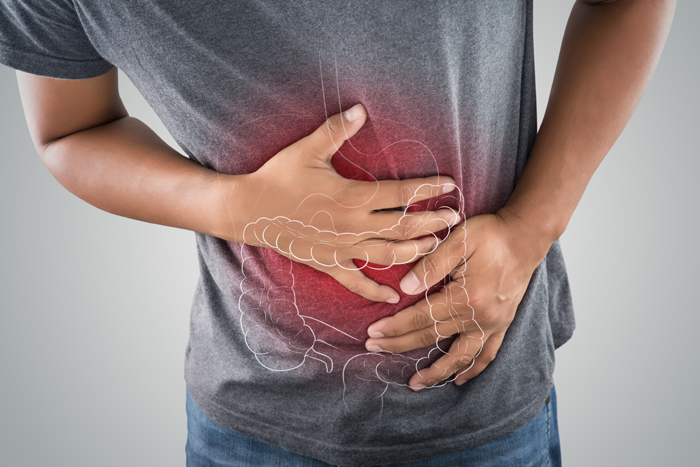Diarrhea Treatment in Koramangala, Bangalore
Diarrhea can be defined as the condition of occurrence of loose, watery stools more frequently than usual.
A virus usually causes Diarrhea, but it may also be caused by infected food. It may occasionally be a symptom of another illness, like inflammatory bowel disease or irritable bowel syndrome.
What is Diarrhea?
When the bowel movements occur as loose or watery, you have Diarrhea. Diarrhea occurs when the intestine's lining is unable to absorb fluid or secretes fluid actively. Inflammation and infection are two of the most common causes.
The majority of cases of Diarrhea are self-limiting and do not need medication. However, staying hydrated by drinking plenty of liquids is essential in any case of Diarrhea to prevent dehydration.

What are the Symptoms of Diarrhea?
Diarrhea can manifest itself in a variety of ways. You can only have one of these interactions or some mixture of them. The underlying cause determines the signs. Some of the common symptoms are:
- Stomach ache
- Constriction
- Stomach bloating
- Dehydration
- A high temperature
- Stools that are bloody
- A solid desire to empty the bowels regularly
- A massive quantity of stools
What Causes Diarrhea?
Virus infections are a frequent cause of Diarrhea in young children. Rotavirus infections are a common cause. However, the vaccine helps avoid gastroenteritis (or minimize the severity risk) caused by rotavirus infection. A variety of viruses still causes Diarrhea in babies and toddlers.
Cholera is an acute diarrheal illness caused by infection of the intestine with Vibrio cholerae bacteria. Children/Adults can get sick when they swallow food or water contaminated with cholera bacteria. The infection is often mild or without symptoms, but can sometimes be severe and life-threatening.
Bacterial (e.g., salmonella), viral (e.g., norovirus or rotavirus), or parasitic (e.g., giardia) infection of the bowels is the most common cause of acute (or brief) Diarrhea. Gastroenteritis is the term for Diarrhea caused by either of these infections. A gastrointestinal infection causes many cases of Diarrhea.
The following are some of the most common causes of chronic Diarrhea:
- Drug-induced Diarrhea
- Endocrine-related causes
- Cancer-related causes
- Microscopic colitis
- Malabsorptive and maldigestion Diarrhea
- Chronic infections
When Should You Consult a Doctor?
Antibiotics should only be used to treat bacterial infections that cause Diarrhea. If a specific medication is a cause, switching to a different one can help.
Before switching drugs, always consult your doctor. Your doctor will inquire about your medical history, medicines you're taking, and what you've recently eaten or drunk. They will check you physically for signs of dehydration or stomach pain.
Request an appointment at Apollo Hospitals
Call 1860 500 2244 to book an appointment
What are the Treatment Options for Diarrhea?
If your condition is minor, you do not need to take any medicine. Adults should take bismuth subsalicylate or loperamide, which are available as liquids or tablets.
It would be best if you also kept yourself hydrated. Per day, you can drink at least six 8-ounce glasses of water. Choose electrolyte replacement beverages or caffeine-free soda. Sports drinks, tea with sugar, and chicken broth (without the fat) are also good options.
What Precautions Can be Taken to Prevent Diarrhea?
Some forms of Diarrhea are highly contagious. When children have Diarrhea, they mustn't attend school or childcare.
- Keep strict food hygiene precautions for a week after any Diarrheal illness.
- Washing the cooking and food preparation areas more often will help you stop getting Diarrhea from food poisoning.
- After using the restroom and before preparing food, wash your hands thoroughly with warm water and soap, and advise your children to do the same.
- Drinking properly boiled, chlorinated or filtered water
Conclusion
Because of all the bowel movements that diarrhea causes, your rectal region can become sore. When you go to the toilet, you can feel itching, burning, or discomfort.
Take a warm bath to relax. After that, use a clean, soft towel to pat the area dry (do not rub). Use a baby cream or petroleum jelly on the infected area if necessary.
When you have Diarrhea or are healing from it, there are a variety of foods that you can avoid. Milk and dairy products, beef, raw vegetables, onion, citrus foods, coffee, soda, and other foods can irritate the digestive system and prolong or exacerbate Diarrhea.
Although occasional bouts of Diarrhea are regular and no cause for alarm, Diarrhea that leads to severe dehydration can be dangerous. It may also be an indicator of an illness or a more severe health condition.
Diarrhea can lead to dehydration, which can be fatal if not treated. Kids, the elderly, and those with compromised immune systems are particularly vulnerable to dehydration. Get medical attention if you show signs of severe dehydration.
Symptoms
Our Top Specialities
NOTICE BOARD
CONTACT US
CONTACT US
 Book Appointment
Book Appointment


.svg)
.svg)
.svg)
.svg)








